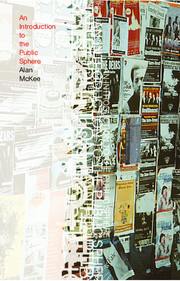1 - Trivialization
Published online by Cambridge University Press: 05 June 2012
Summary
‘Diana and the doctor: he is my destiny. How their secret love flourished.’ ‘The secret life of a paedophile mayor. How powerbroker Tony Bevan sold young boys for sex.’ ‘Girls who love girls — and have kids. Singer Melissa Etheridge and her lover announce they're having a baby.’ ‘Total makeovers: how stars are transforming their looks and lives. Then: Ginger Spice. Now: UN Ambassador Geri Halliwell.’ ‘Yes! Yes! Yes! The secrets of women who orgasm easily.’ ‘Should you call him? Reveal your sexual history? Sleep with him fast? Do more in bed?’
Substantial parts of the public sphere in Western countries — and particularly those media that are aimed at women (Hermes, 1995) — deal exclusively in triviality. Magazines like Who, Heat, New Weekly, Cosmopolitan and Cleo, and television programs like E! and Inside Entertainment take issues that used to be private and relentlessly make them public. They deal with bodies — what they look like, how they're changing, what people do to them, and what they do with them sexually — and make this part of the public sphere. Sometimes they address serious political figures — trumpeting the sex lives or makeovers of politicians. More commonly they deal with ‘celebrities’ — particularly Hollywood, television and music stars — or even ordinary people's ‘human interest’ stories. It's not only the lifestyle and gossip magazines aimed at women which trade in such stuff.
- Type
- Chapter
- Information
- The Public SphereAn Introduction, pp. 32 - 65Publisher: Cambridge University PressPrint publication year: 2004



